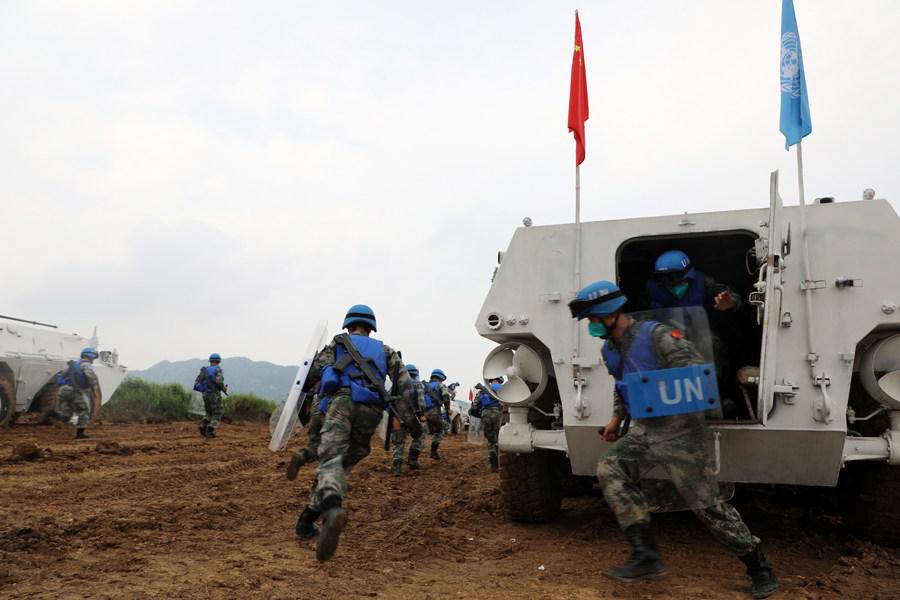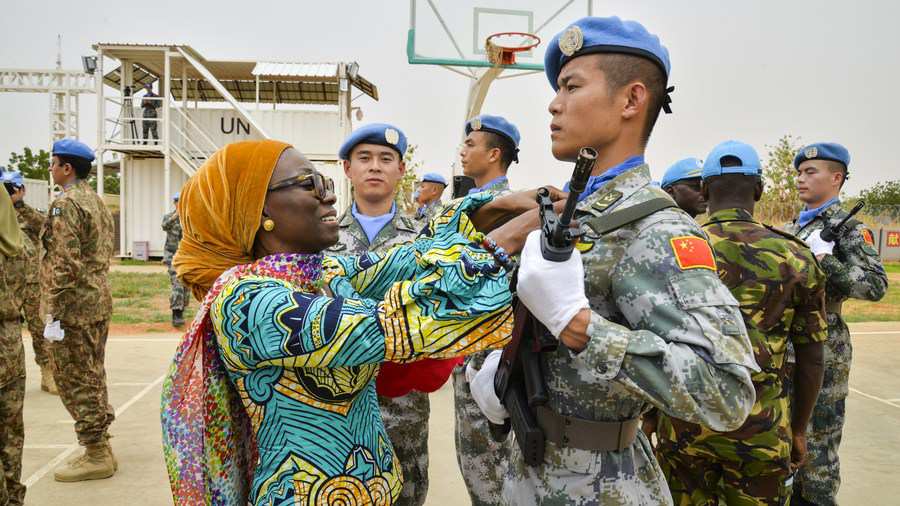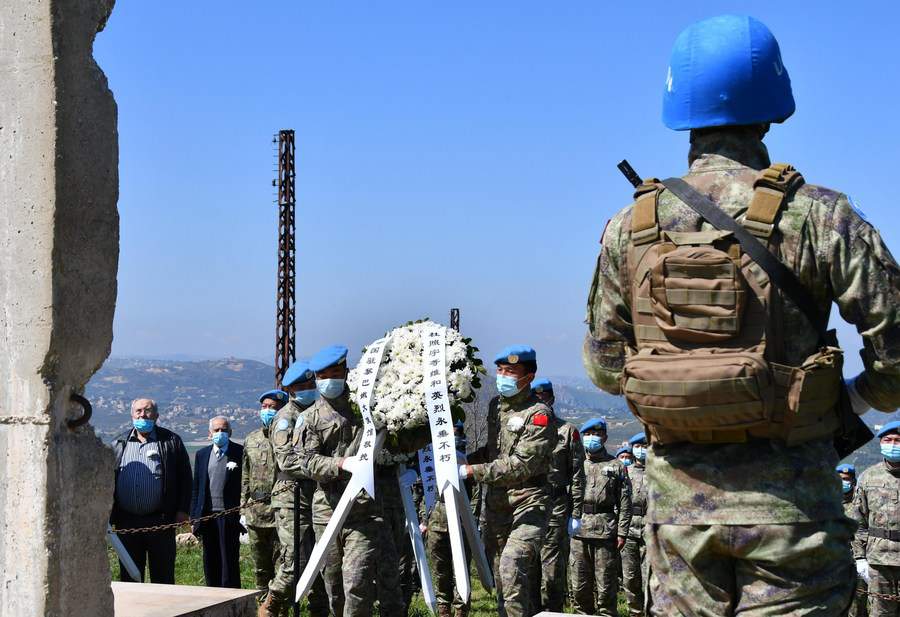Chinese envoy stresses importance of peacekeeping transition strategy

Peacekeepers participate in an international peacekeeping drill, code-named "Shared Destiny-2021", at a combined-arms tactical training base of the Chinese People's Liberation Army (PLA) in central China's Henan Province, Sept. 7, 2021. (Xinhua/Liu Fang)
What transpired recently in Afghanistan is proof that the so-called democratic transformation imposed from the outside would inevitably end in failure. The international community and the United Nations should learn the lessons and continue to provide effective and strong support to post-conflict countries, such as Afghanistan, in their reconstruction efforts, a Chinese envoy said.
UNITED NATIONS, Sept. 8 (Xinhua) -- A Chinese envoy on Wednesday stressed the importance of UN peacekeeping transition strategy.
Peacekeeping operations are an important means for the United Nations to maintain international peace and security. A properly formulated and effectively implemented transition strategy is key to the success of a peacekeeping operation, said Dai Bing, charge d'affaires of China's permanent mission to the United Nations.
The issue is also a common topic that requires Security Council members to take stock of lessons learned and strive to continuously improve, he told an open debate of the council on the issue of peacekeeping transitions.
Dai underscored the need to optimize the overall planning of UN peacekeeping operations.
UN peacekeeping operations should always follow the goal of political settlement. Timely adjustments in the mandate and priorities should be made in light of the evolution of the situation on the ground. The protection of civilians, human rights, and transitional justice are all means to serve the political process, and cannot replace the political process itself, he said.
The Security Council, at the early stage of peacekeeping deployment, should incorporate peacebuilding plans with the aim to lay the foundation for long-term peace and stability in the host country. As the situation gradually stabilizes, the formulation of a clear and feasible exit strategy should become an important element in promoting a smooth transition, he said.

Anita Kiki Gebe, deputy joint special representative of the United Nations-African Union Mission in Darfur (UNAMID), awards UN peace medal to a soldier of the 2nd China Medium Utility Helicopter Unit (CMUHU02) in El-Fashir, Sudan, July 17, 2019. (Xinhua)
Supporting the host country in nation-building is a top priority, said Dai.
A country emerging from conflicts usually sees its infrastructure in ruins. The transition from peacekeeping to peacebuilding is key to national reconstruction, he said.
Reconstruction is primarily the responsibility of the country concerned. But a post-conflict country, due to its vulnerability and fragility, is hardly capable of independent development during this transitional phase. The United Nations and the international community have the responsibility to provide targeted support to such a country so as to build and improve its self-driven development capacity, he said.
It should be emphasized that political and social stability hinges on steady economic development. In formulating a transition strategy, priority should be given to key sectors, such as infrastructure, agriculture, resource utilization, education, and poverty eradication as these are all important conditions for long-term peace and stability of the country concerned, he said.
What transpired recently in Afghanistan is proof that the so-called democratic transformation imposed from the outside would inevitably end in failure. The international community and the United Nations should learn the lessons and continue to provide effective and strong support to post-conflict countries, such as Afghanistan, in their reconstruction efforts, he said.

Members of the 19th batch of Chinese peacekeeping forces to Lebanon lay a wreath to pay tribute to martyrs including Du Zhaoyu on the occasion of Qingming Festival in Khiam, Lebanon, April 4, 2021. (Photo by Ding Wendong/Xinhua)
Dai also stressed the importance of formulating a transition strategy that is in line with the local conditions. Post-conflict transition involves the rebuilding of state institutions, national reconciliation, security sector reform, among others. These are all sovereignty-related issues that cannot be separated from the specific political, economic, and cultural conditions of the country concerned, he said.
"In designing a transition plan for a UN peacekeeping operation, we should fully heed and respect the wishes of the country so as to ensure convergence and complementarity with national development strategies and priorities, which are independently formulated and determined by the country."
It is also essential to make timely adjustments in light of the evolving situation on the ground, he added.
For many years, China has actively supported reconstruction and development of post-conflict countries, especially developing countries, and provided support in the field of economic development, education, health, and infrastructure, focusing on helping them improve their independent development capacity and achieve a greater degree of self-reliance and self-sufficiency, he said.
The China-UN Peace and Development Fund has actively supported relevant countries in undertaking cooperation projects on counter-terrorism, peacekeeping, good offices, mediation, and sustainable development. China stands ready to work with the international community to continue its positive contribution in helping post-conflict countries in achieving peace and sustainable development, said Dai.
Photos
Related Stories
Copyright © 2021 People's Daily Online. All Rights Reserved.










